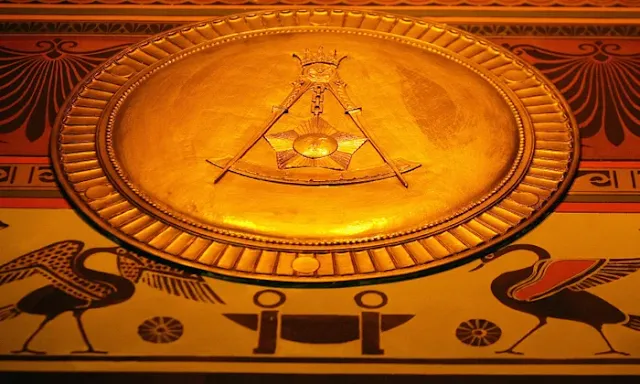Freemasonry: Symbolism or Secret Power?
Introduction
Freemasonry has fascinated, perplexed, and inspired speculation for centuries. Often described as a "society with secrets" rather than a secret society, the Masonic order is one of the world’s oldest fraternal organizations. Rooted in medieval stonemasons' guilds, it evolved over time into a structured network that emphasizes personal development, ethics, and philanthropy. However, for many outside observers, Freemasonry's enigmatic symbols, rituals, and global presence evoke more than mere brotherhood—they suggest hidden influence, power, and conspiracy. This article explores whether Freemasonry is merely symbolic or if it holds a deeper, more secretive power.
The Origins of Freemasonry
The origins of Freemasonry are still debated among scholars. While some trace its formal establishment to the formation of the Grand Lodge of England in 1717, many argue that its roots go back much further, possibly to the Knights Templar or even ancient mystery schools of Egypt and Greece. Regardless of its true beginnings, Freemasonry emerged as a moral and philosophical system that used allegory and symbol to convey deeper truths about the human condition and the cosmos.
Symbols and Rituals: Windows to Ancient Wisdom
Symbols are central to Masonic tradition. The square and compass, the all-seeing eye, the letter "G", and the pillars of Boaz and Jachin are just a few examples. Each symbol serves multiple layers of meaning, often drawing from sacred geometry, numerology, and Hermetic philosophy. Initiation rituals are likewise rich with allegory, designed to guide members through a metaphorical journey of enlightenment, death, and rebirth.
Critics often claim that these symbols and rituals are meant to conceal rather than reveal. They ask: why the secrecy if the organization is benevolent? Masons respond that secrecy protects the integrity of the experience and separates the profane from the initiate. In their view, the symbolism serves as a tool for introspection and spiritual development, not domination.
The Hierarchical Structure
Freemasonry is not a monolith. It comprises various degrees, lodges, rites, and jurisdictions across the world. The most common structure includes the three "Blue Lodge" degrees: Entered Apprentice, Fellowcraft, and Master Mason. Beyond these are appendant bodies such as the Scottish Rite and the York Rite, which delve deeper into esoteric teachings and moral allegories.
Each level introduces new lessons and challenges, further immersing the initiate into the philosophical tapestry of the craft. This tiered structure has led to public suspicion about what is being revealed at the higher levels. Are these teachings merely symbolic, or do they unlock real-world influence and power?
Influence in History and Politics
One of the major points of contention is the presence of Freemasons in positions of power. Many of the Founding Fathers of the United States, including George Washington and Benjamin Franklin, were Masons. Several European monarchs, revolutionaries, and intellectuals were also members. This has led to theories that Freemasonry acts as a shadow government or an elite network influencing world events.
However, correlation is not causation. Supporters argue that the presence of Masons in positions of leadership is not evidence of conspiracy, but rather a testament to the organization's emphasis on leadership, integrity, and civic responsibility. Still, the closed nature of Masonic proceedings makes it difficult to definitively dismiss the idea of covert agendas.
Religious Controversies
Freemasonry has often found itself at odds with organized religion. The Catholic Church, in particular, has issued multiple papal bulls condemning Masonic lodges, citing their perceived relativism, secrecy, and potential for subversion. Some Protestant denominations also discourage membership, viewing Masonic teachings as incompatible with Christian doctrine.
Freemasons, however, insist that their organization is not a religion, nor does it require members to abandon their faith. Rather, belief in a Supreme Being (referred to as the "Great Architect of the Universe") is a prerequisite. The lodge is meant to be a spiritual supplement, not a replacement, emphasizing moral rectitude, tolerance, and the search for truth.
Modern Freemasonry: Evolution or Decline?
In the 21st century, Freemasonry faces declining membership in many parts of the world. Societal changes, skepticism toward exclusive organizations, and increasing transparency have led to a shift in public perception. Many lodges now engage in public service, charity, and open house events in an effort to demystify their role.
Nonetheless, the internet age has also fueled a resurgence of conspiracy theories. YouTube channels, Reddit threads, and alternative news sites often portray Freemasonry as part of a grander globalist agenda or link it to the Illuminati. These portrayals range from the mildly speculative to the wildly fantastical, often overshadowing the very real charitable and educational work done by Masonic lodges.
Freemasonry and Esotericism
For those who delve deeper, Freemasonry is not just a social fraternity but an esoteric tradition. Its teachings intersect with alchemy, Kabbalah, Rosicrucianism, and Gnosticism. The rituals, symbols, and degrees can be seen as a path toward inner transformation and enlightenment. In this context, the "power" of Freemasonry lies not in worldly dominance but in spiritual elevation.
Still, esoteric knowledge has historically been guarded from the masses. The idea of "hidden wisdom" accessible only to a chosen few naturally breeds suspicion. Are Masons gatekeepers of ancient truths? If so, what responsibility do they have to share them?
Conclusion: Symbolism or Secret Power?
So, is Freemasonry a symbolic tradition or a secretive power structure? The answer likely lies somewhere in between. For most of its members, Freemasonry is a journey of self-improvement, ethical living, and camaraderie. Its symbols and rituals serve as tools for introspection and philosophical exploration.
However, its historical entwinement with influential figures, its layers of secrecy, and its esoteric teachings ensure that it will remain a subject of fascination and speculation. Whether one sees the Craft as an allegorical school of wisdom or a covert network of control often depends more on perspective than proof.
Ultimately, Freemasonry endures as a multifaceted institution—at once public and private, ancient and modern, symbolic and powerful.
Inside a Masonic Lodge:
Historic Freemasons and Iconography:






.png)